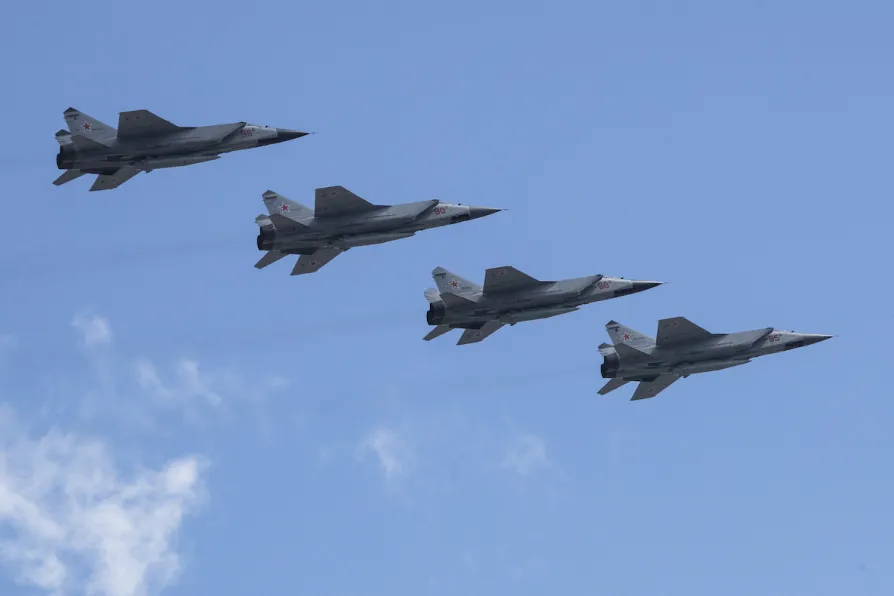
 Russian's Air Force Mikoyan MiG-31K jets carrying Kh-47M2 Kinzhal nuclear-capable air-launched ballistic missiles fly over Red Square during a rehearsal for the Victory Day military parade in Moscow, Russia, on May 7, 2021.
Russian's Air Force Mikoyan MiG-31K jets carrying Kh-47M2 Kinzhal nuclear-capable air-launched ballistic missiles fly over Red Square during a rehearsal for the Victory Day military parade in Moscow, Russia, on May 7, 2021.
THE world’s nine nuclear-armed states continue to modernise their arsenals and several deployed new nuclear-armed or nuclear-capable weapon systems in 2022, a Swedish think tank said today.
Stockholm International Peace Research Institute (Sipri) estimates in its annual assessment of state armaments and international security that of the total global inventory of 12,512 warheads in January, some 9,576 were in military stockpiles for potential use.
This figure is 86 more than in January last year.
The independent institute listed the nuclear-armed states as the United States, Russia, Britain, France, China, India, Pakistan, North Korea and Israel.
In its yearbook, Sipri wrote that the US and Russia together possess almost 90 per cent of all nuclear weapons.
They each also hold more than 1,000 warheads previously retired from military service, which they are gradually dismantling.
Sipri said the size of China’s nuclear arsenal had increased from 350 warheads in January 2022 to 410 this year and it is expected to keep growing.
“Depending on how it decides to structure its forces, China could potentially have at least as many intercontinental ballistic missiles as either the US or Russia by the turn of the decade,” it wrote.
Sipri director Dan Smith said in a statement: “We are drifting into one of the most dangerous periods in human history.
“It is imperative that the world’s governments find ways to co-operate in order to calm geopolitical tensions, slow arms races and deal with the worsening consequences of environmental breakdown and rising world hunger.”
Sipri associate researcher Matt Korda said the majority of the nuclear-armed states are hardening their rhetoric about the importance of nuclear weapons, and some are even issuing explicit or implicit threats about their use.
He said: “This elevated nuclear competition has dramatically increased the risk that nuclear weapons might be used in anger for the first time since World War II.”
The programme’s director Wilfred Wan said: “With billion-dollar programmes to modernise, and in some cases expand, nuclear arsenals, the five nuclear weapon states recognised by the nuclear Non-Proliferation Treaty seem to be moving further and further from their commitment to disarmament under the treaty.”
Nuclear arms control and disarmament diplomacy has suffered major setbacks following Russia’s invasion of Ukraine in February last year, Sipri said.

Home Secretary Cooper confirms plans to ban the group and claims its peaceful activists ‘meet the legal threshold under the Terrorism Act 2000’

US president says his nation might join forces with Israel in attacking Iran
















